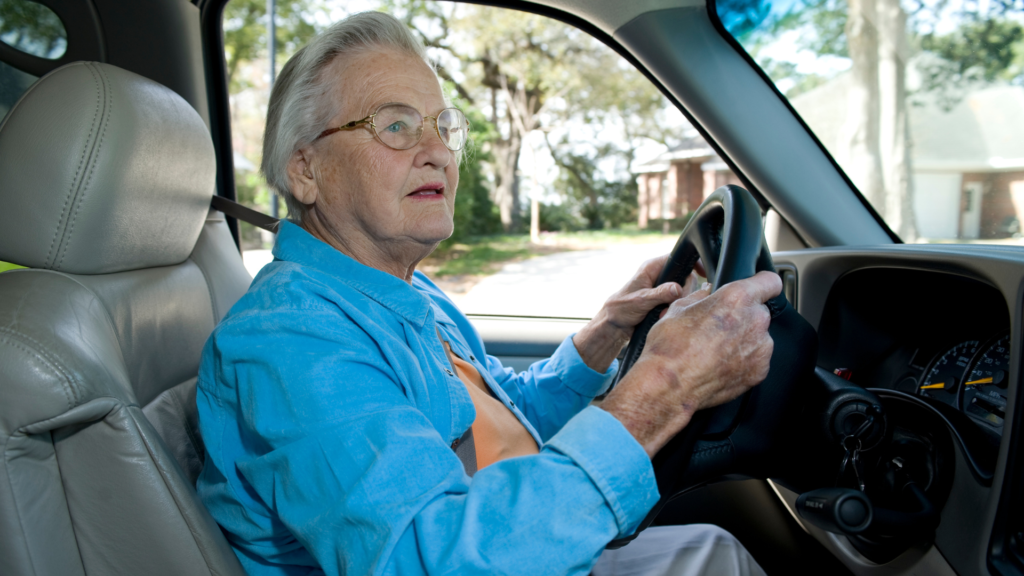
Is your Elderly Loved One Still a Safe Driver?
Are you getting a little concerned about your elderly loved one’s ability to drive?
It’s an inevitable fact of life that as we age, many of our abilities start to diminish. For some people, this might mean weaker bones or a decrease in stamina. But for many seniors, one of the hardest things to deal with is losing the ability to drive. As difficult as it may be to give up that independence, it’s important to remember that driving can be dangerous for elderly loved ones who might not be able to react as quickly in a crisis situation. So how do you know when it’s time to hang up the keys? Here are a few tips to deal with an elderly parent or loved one who might not be a safe driver anymore.
Signs that it might be time for your loved one to stop driving
If you’re noticing any of the following signs, it might be time to have a talk with your elderly loved one about giving up driving.
- They’re getting into more accidents, or near-misses.
- They’re having difficulty understanding traffic signals and signs.
- They’re getting lost, even in familiar places.
- They’re having trouble with their vision, hearing, or other senses.
- They’re experiencing cognitive decline.
- Their reflexes are slowing down.
- They’re taking medication that could affect their ability to drive.
How to have a conversation about driving with your loved one
If you’re noticing any of the signs above, it’s time to have a conversation with your loved one about driving. This can be a difficult conversation, but it’s important to approach it in a way that is respectful and understanding.
Here are some tips for how to have this conversation:
- Pick a time when you can talk without interruption.
- Explain your concerns calmly and clearly.
- Listen to their concerns and perspective.
- Avoid getting angry or argumentative.
- Offer alternative transportation options, such as public transportation, ride sharing, or senior transportation services.
- Help them plan for how they will get around without driving.
- Thank them for their understanding.
Alternatives to driving for seniors
If your elderly loved one is no longer able to drive, there are still many transportation options available. Here are some alternatives to driving for seniors:
- Public transportation
Many cities have public transportation systems that can be used by seniors. This can be a good option for getting around town or running errands.
- Ride sharing
Ride sharing services, such as Uber or Lyft, can be a good option for seniors who need transportation but don’t want to drive.
- Senior transportation services
There are many senior transportation services available that can provide door-to-door service for seniors.
- Walking
If your loved one is able and willing, walking can be a good option for short distances.
- Biking
If your loved one is able and willing, biking can be a good option for short distances.
Resources for helping seniors stay safe on the road
If you’re senior loved one is still driving, there are many resources available to help them stay safe on the road. Here are some resources for senior drivers;
- The Department of Driver Services offers a Road Wise senior driver safety program.
- The Georgia Council on Aging offers a senior driver safety program.
- AARP offers a mature driver safety course.
Get regular check-ups from a doctor to make sure they’re still fit to drive
If your elderly loved one is still insistent on driving, it’s important to make sure that they are still physically and mentally able to do so. Regular check-ups with a doctor can help you ensure that your loved one is still safe to drive.
Be sure to ask their doctor about:
– Their vision and hearing.
– Their cognitive function.
– Their reflexes.
– Their overall health and fitness.
If their doctor has any concerns, it might be time to have a talk with your loved one about giving up driving.
Get an in-home care provider to help with transportation
If your elderly loved one is no longer able to drive, an in-home care provider can be a great option for transportation. In-home care providers can help with all sorts of tasks, including transportation. They can provide door-to-door service, and many of them are also willing to run errands or take seniors to appointments. They can be a great option for seniors who need transportation but don’t want to drive.
If you’re considering an in-home care provider, be sure to ask about their experience with transportation. Make sure that they are comfortable driving seniors around, and that they are familiar with the area.
It can be difficult to make the decision to stop driving, but keeping an elderly loved one safe is always a top priority. If you’re worried that a parent or grandparent is no longer safe behind the wheel, we are here to help. Our team of experts can assess their abilities and work with them to find a new way for them to get around town. We understand this process can be difficult, but our goal is always safety first. Have you had any experience dealing with this issue? If you’re not sure where to start, you can contact us at (678) 494-8129 or email us at info@SilverCompanions.com. We are open to discuss this issue and help in any way we can.





